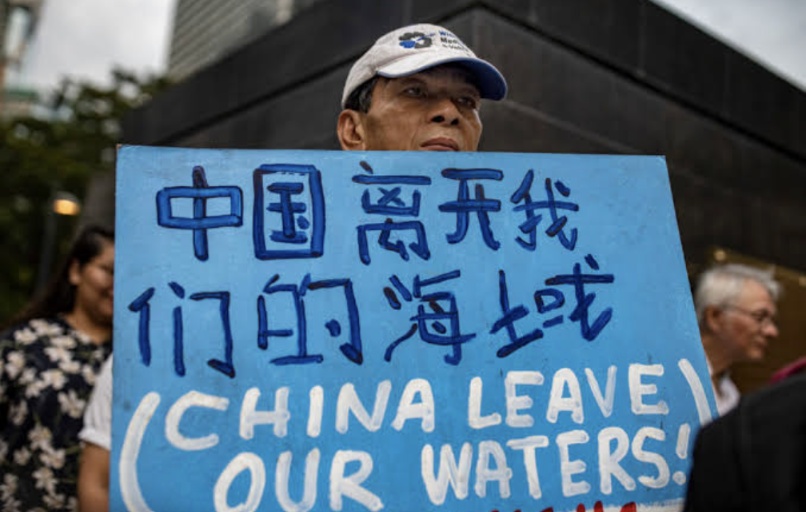In his recent piece “Ideology, anyone?”, Manila Standard columnist Lito Banayo hits upon a key reason why we are not as progressive as our ASEAN neighbors. Banayo gets to the core of why the “Unity” theme of the current administration of President Bongbong Marcos (PBbM) is in a death spiral sharing a conversation he picked up in one the lunch meetings he attends weekly…
The reason he advanced [behind why “the UniTeam is now all but dead”] was that the “alliance” between PBbM and ISZDC in 2022 was not based on any ideology or common principles, but was purely for purposes of electoral victory.
To which an incumbent governor, our lunch group’s resident “pilosopo” who always has something to say about anything, mostly street smart quips though based on a good reading of political history, retorted: “Meron bang ideology sa Pilipinas? Komunista lang ang may ideology.”
Almost everybody in our lunch group agreed with undisguised glee to his quip.
Indeed, as Banayo eloquently highlights, our political leaders don’t have ideological underpinnings. PBBM’s father, the late former President Ferdinand E. Marcos, was the only president who attempted to provide it through his Bagong Lipunan (New Society) Movement. Alas Marcos Sr. also fell short because his industrialization program was dragged down by the US recession and, at that time, there were no other financing alternatives aside from the International Monetary Fund and World Bank (IMF-WB).
Since 1986, the pattern has been the revolving door between the defeated party and the party in power. Witness how Singapore has been progressive since its separation from Malaysia. Why? Their late former Prime Minister Lee Kuan Yew got rid of the communists. Then he proceeded to lay down his vision of what Singapore should be and what a Singaporean is. For all intents and purposes, Singapore is a benevolent dictatorship but the formula has proven successful. Today, Singapore has a new prime minister in the person of Lawrence Wong. The consistency and stability of Singapore is the main reason why it’s progressive despite its size.
| SUPPORT INDEPENDENT SOCIAL COMMENTARY! Subscribe to our Substack community GRP Insider to receive by email our in-depth free weekly newsletter. Subscribe to our Substack newsletter, GRP Insider! Learn more |
In contrast, our politics is driven by money and power. We haven’t moved on from the feudalism of the Spanish period. The friars were replaced by political lords instead. Even American democracy was largely ineffective because the colonists used the ruling class to rule over the greater majority. After World War II, the elites focused on rebuilding their fortunes and this has been the case up to to this day. Old oligarchs have died and their fortunes dissipated only to be replaced by new ones.

This is why we are, today, scraping the bottom of the barrel as far as leaders are concerned. The system bred mediocrity and we are now at that point where the leading presidential contender barely has the credentials and the competence to lead. Can Vice President Inday Sara Duterte and Senator Raffy Tulfo, be even considered real leadership choices? It’s about time we wake up to the reality that the only way for change to come is if the revolution begins with the Filipino people and in the way that they think.
Cook wide reader political crackpot music afficionado old soul out-of-the box thinker aspiring writer tech geek gearhead
So you want to go back to the Marcos Sr. era, to a dictatorship-like system of governance?
To say that “only the communists have an ideology” shows the stupidity of the sayer, and everyone who agrees with it. Filipinos should read up about what the term ideology is defined.
Filipinos misconception of the term ideology angers me.
“Our political leaders don’t have ideological underpinnings”
That’s because no leader dares to question the ideology that underpins what we have now.
Although it’s been said that there’s an interference whenever a leadership attempts to deviate from the status quo, the speculations make sense when you see that centers of capital accumulation demands that countries give up their economic sovereignty.
“Ideological underpinning” kind of doesn’t sit well with me – it implies that governance will be driven by a belief system that may be more ideal than attuned to reality.
Pragmatism and practicality, I think, are always better bases of governance, though extremely rare in today’s world, plus it seems that the shift to pragmatism is most likely to occur only when one is disillusioned by adherence to ideology.
To live by the ways of pragmatism and practicality is also an ideology.
But a politician must always live by some form of political ideology otherwise that person does not know what he/she is doing… like having a nurse working as a software developer.
Pilipinos rather boot lick the americanos. That way they can “enjoy” are that wonderment of the us regime….